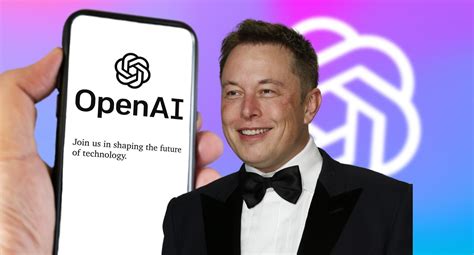The tech world was buzzing when Elon Musk dropped his lawsuit against OpenAI and Sam Altman. The reasoning behind this abrupt decision has left many industry insiders and observers puzzled. Various comments and analyses from those in the know suggest that Musk’s motives might be far more complex than they initially appeared. He is known for his fierce competitive spirit and strategic foresight, so what made him decide to halt the legal battle? A deeper look into the situation reveals numerous layers of corporate strategy, personal vendettas, and broader industry implications.
Many observers, such as minimaxir, speculated that Musk’s recent complaints about Apple and OpenAI’s partnership on social media might have influenced his decision to drop the suit. The tech mogul is not one to shy away from leveraging his massive online following to send a message or to vent his frustrations. This behavior can sometimes yield tangible results, though it might also lead to public relations missteps. The apparent disconnect between Musk’s actions and the projected outcomes calls for a critical examination of his motivations and their long-reaching effects on his ventures.
Several commentators, like threeseed, believe that Musk’s attempts to negotiate a place for Grok, his AI project, in Apple’s LLM (Large Language Model) strategy were unsuccessful. With tech giants such as Google, Apple, and Samsung implementing their own locked-in AI strategies, Grok’s pathway to relevance seems increasingly narrow. The alliance between Apple and OpenAI signifies a strategic consolidation that might limit room for competing independent ventures. This might be why Musk chose to express his grievances publicly before pulling back legally.
Public reactions, as observed in the online discourse, vary from empathy to outright dismissal of Musk’s feelings. Comments from users like lanstin discussed how Musk’s AI, often perceived as controversial and conflicting with Apple’s brand image, could create a significant alignment issue. Apple’s stringent brand management, including rules like not allowing movie villains to use iPhones in films, exemplifies their commitment to maintaining a certain public perception. Musk’s tendency for inflammatory statements could have driven Apple to distance themselves further, making partnership talks futile.
The narrative also touches on Musk’s erratic leadership style and its impact on corporate operations. JumpCrisscross’s interrogation of Musk’s long-term plans shows a willingness to burn bridges—whether with potential partners or within existing frameworks of cooperation. This behavior is not new; Musk’s history is replete with examples of high-stakes gambles and abrupt pivots, which have earned him both admirers and critics. Musk’s latest actions, dropping the lawsuit while vocalizing his objections loudly, are consistent with this pattern, but they also highlight possible vulnerabilities in his approach.
The reactions underscore a broader industry sentiment about trust, corporate governance, and the ethical deployment of AI technologies. Comments from users like insane_dreamer sum up the ‘sour grapes’ effect where Musk might be no longer influential within a domain he helped proliferate. This situation mirrors broader concerns about how founding tech visionaries like Musk manage transitions and cede control. The juxtaposition of Musk’s influential yet divisive personality with Altman’s seemingly more stable public image creates an engaging study of leadership in high-tech ventures.
Finally, the implications of Musk’s withdrawal from the lawsuit take on added significance when considered against the backdrop of OpenAI’s transformation into a profit-driven entity. This shift has been contentious, with voices like robotnikman criticizing the continued use of ‘OpenAI’ as a name despite the profit motives. The lawsuit and its fallout highlight ongoing debates about the ethics and future direction of AI development. These discussions are crucial, as AI continues to embed deeper into the fabric of society, and the entities controlling its evolution wield unprecedented power and responsibility.
In summary, Musk’s decision to drop the lawsuit is packed with strategic intrigue and multifaceted reactions. From competitive strategy, brand alignment to ethical considerations in AI, this episode sheds light on the challenges and complexities faced by tech giants. As these dynamics play out, they inevitably shape the future trajectory of technology and its custodians.


Leave a Reply